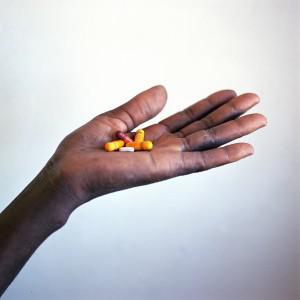HIV patients denied treatment after document circulated to Gauteng hospitals


Activists say new policy is “vague” & could be confusing
Leaked to public interest group Section27, the policy requires public hospital patients to prove they are legally in the country before receiving care. Those who cannot provide proof must pay the estimated cost of their healthcare upfront with the expectation that any difference between the estimated and real cost of care would be paid back, according to Section27 Attorney Sasha Stevenson.
The draft policy is already being implemented at the Helen Joseph, South Rand, Charlotte Maxeke, and Rahima Moosa Mother and Child hospitals, according to the Southern African HIV Clinicians Society and the Treatment Action Campaign (TAC).
“The trouble with the policy is that you have to prove that you are a citizen, resident, asylum seeker or refugee,” Stevenson told Health-e. “We know plenty of South Africans that don’t have identity books and those that do aren’t obliged to carry them.”
Refugees and asylum seekers are also not required to carry documentation with them, said Stevenson, adding that Gauteng’s draft policy risked turning nurses into defacto immigration officials.
“It becomes up to the nurses to monitor immigration and that’s not correct,” she said. “There’s not a ban on limiting services according to national policy, we’re just concerned about how this policy is being communicated.”
While he did not confirm the draft policy’s existence, Gauteng Department of Health spokesperson Simon Zwane said the department follows national policy.
“Health care is free for everyone at the primary care level and that no one can be denied access to care in an emergency setting,” Zwane told Health-e. “To access care in a hospital, normal tariffs apply…this remains the case (for) South Africans and migrants alike.”
The Southern African HIV Clinicians Society and TAC have asked for an urgent meeting with Gauteng MEC for Health Hope Papo and Head of Department Ndoda Biyela after reports that HIV patients who were unable to prove South Africa citizenship were allegedly denied antiretroviral treatment (ART) at the South Rand Hospital. A 2007 national department of health directive extended free ART to anyone in need regardless of documentation.
While South Rand Hospital management has agreed to meet with TAC, Papo and Biyela have yet to respond.
South African policy provides free primary health care and emergency services to everyone, Stevenson admits there remain questions as to what this means in practice – questions that will have to be answered via regulations to the National Health Act prior to the National Health Insurance’s introduction.
“There is no definition for ‘emergency medical treatment’ or what constitutes ‘primary health care services,” she told Health-e. “There’s not always a clear line between what is and isn’t an emergency and we hear that a lot from doctors regarding obstetrics cases.”
“The devil is in the detail and we don’t have that detail,” Stevenson added. “It’s valuable to open up that decision now because it’s going to come up under the NHI.” – Health-e News Service.
Author
Republish this article
This work is licensed under a Creative Commons Attribution-NoDerivatives 4.0 International License.
Unless otherwise noted, you can republish our articles for free under a Creative Commons license. Here’s what you need to know:
You have to credit Health-e News. In the byline, we prefer “Author Name, Publication.” At the top of the text of your story, include a line that reads: “This story was originally published by Health-e News.” You must link the word “Health-e News” to the original URL of the story.
You must include all of the links from our story, including our newsletter sign up link.
If you use canonical metadata, please use the Health-e News URL. For more information about canonical metadata, click here.
You can’t edit our material, except to reflect relative changes in time, location and editorial style. (For example, “yesterday” can be changed to “last week”)
You have no rights to sell, license, syndicate, or otherwise represent yourself as the authorized owner of our material to any third parties. This means that you cannot actively publish or submit our work for syndication to third party platforms or apps like Apple News or Google News. Health-e News understands that publishers cannot fully control when certain third parties automatically summarise or crawl content from publishers’ own sites.
You can’t republish our material wholesale, or automatically; you need to select stories to be republished individually.
If you share republished stories on social media, we’d appreciate being tagged in your posts. You can find us on Twitter @HealthENews, Instagram @healthenews, and Facebook Health-e News Service.
You can grab HTML code for our stories easily. Click on the Creative Commons logo on our stories. You’ll find it with the other share buttons.
If you have any other questions, contact info@health-e.org.za.
HIV patients denied treatment after document circulated to Gauteng hospitals
by lauralopez, Health-e News
August 30, 2013



